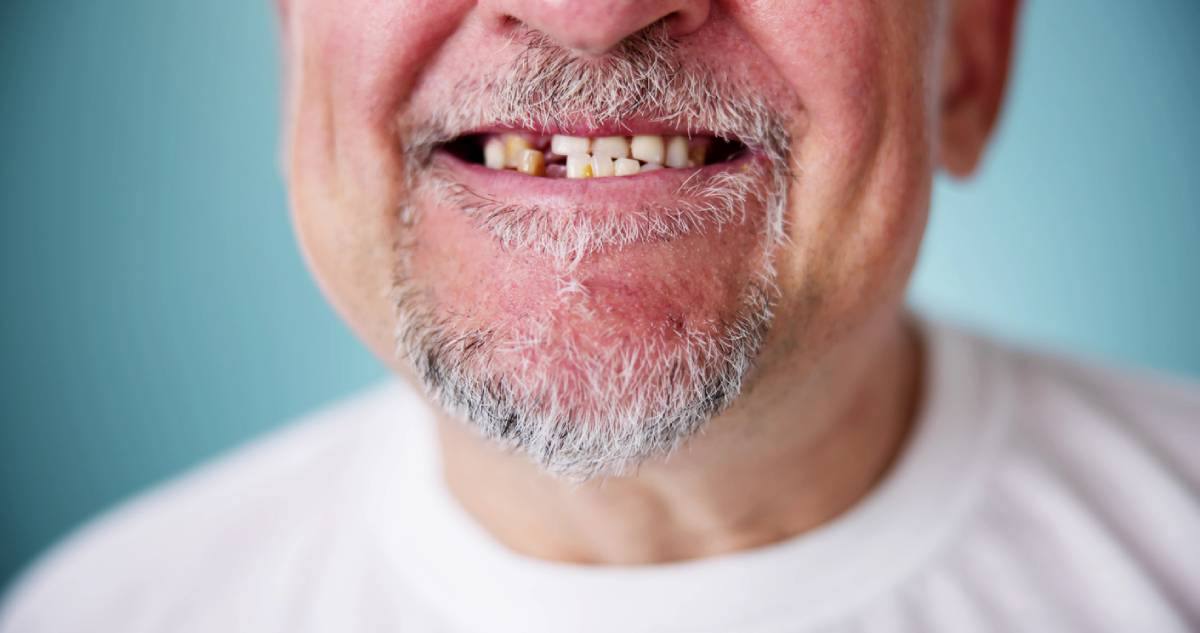Dental implants are clearly an effective solution for those experiencing tooth loss. However, if you are experiencing tooth loss, you may wonder if its cause affects the effectiveness of an implant. If you have been considering getting dental implants but have a history of periodontal disease, read on for our answer to the question, “Can you get dental implants if you have periodontal disease?”.
Can You Get Dental Implants If You Have Periodontal Disease?
Periodontal disease, otherwise known as gum disease, is a chronic inflammation and infection of the gums and the bone that supports your teeth. While it can pose unique challenges for implant procedures, it does not necessarily disqualify patients with this dental issue.
If you have this problem, you will benefit from exploring what periodontal disease is, its impact on dental implants, and what you can do to increase your chances of success.
What Is Periodontal Disease?
Periodontal disease is a common problem, especially among adults. Although some people are more prone to this condition than others, it can also be caused by poor dental hygiene. Periodontal disease starts as gingivitis, characterized by red, swollen, and bleeding gums. At this stage, gingivitis is still reversible with proper care. After, once the infection spreads below the gumline, it leads to bone loss and eventually, if not resolved, tooth loss. In fact, periodontal disease is the leading cause of tooth loss.
Symptoms of Periodontal Disease
How do you know if you already have periodontal disease? Some symptoms of periodontal are:
- Reddish or purplish gums
- Bleeding gums
- Halitosis or bad breath
- Soreness
- Unpleasant taste in the mouth
- Painful chewing
- Receding gums
- One or many loose teeth
Causes of Periodontal Disease
- Poor brushing
- Poor flossing habits
- Smoking
- Risk factors like smoking, hormonal changes
- Genetics
- Certain illnesses, such as diabetes, and their medications
You can prevent gum disease by:
- Brushing your teeth at least twice a day with a fluoride toothpaste
- Flossing daily to get rid of plaque and bacteria between the teeth
- Regularly visiting the dentist for check-ups and regular cleaning
- Not smoking
Dental Implant Challenges of Periodontal Disease Patients
The effectiveness of dental implants depends on how well the titanium implant fuses with the jawbone. The process of the jawbone and implant fusing is called osseointegration. The health and bone density of your gums dramatically impacts it. Periodontal disease affects both of these factors, which is why it can disrupt the function of dental implants.
- Bone Loss: When gum disease gets to an advanced stage, it often leads to jawbone deterioration and reduces the stability needed for implants.
- Infection Risk: Gum or periodontal disease can increase the risk of getting peri-implantitis, which is much like periodontitis. Peri-implantitis affects the tissues around the implant and can eventually lead to implant failure.
- Weakened Immune Response: A symptom of periodontal disease is chronic inflammation. This can affect the healing and integration of the implant.
These challenges, however, do not mean that patients with a history of gum disease can no longer have a successful dental implant. The key is in the treatment and preparation.
Steps to Take Before Getting Dental Implants
If you have gum disease or a history of gum disease, your periodontist would likely recommend that you do the following before you undergo a dental implant procedure.
- Treat the Gum Disease: Addressing the active infection should be your priority. Treatment options may include:
- Get Scaling and Root Planing: This procedure can deeply clean below the gumline and remove plaque.
- Use Antibiotic Therapy: Antibiotics will help get rid of the infection.
- Consider Surgery: If your condition is severe, surgery or bone grafting may be needed to restore healthy tissue and bone.
- Evaluate Bone Health: A thorough evaluation, which usually includes X-rays or 3D imaging, can help determine the extent of bone loss. If bone density is a problem, you may need a bone graft to rebuild the foundation.
- Adopt Healthy Habits: Keep your gums healthy and avoid future infections by adopting an excellent oral hygiene routine and not smoking.
Post Implant Care
Post-implant care is just as important as the preparations before the procedure. Maintain excellent oral hygiene and be sure to visit your dentist regularly. A healthy diet and positive lifestyle choices will help you prevent complications like peri-implantitis and help ensure that your implants can serve you for a long time.
Restore Your Confidence and the Functionality of Your Teeth
Although periodontal disease does pose some extra challenges to those interested in dental implants, it does not make the success of the procedure impossible. With guidance from a professional, you can get dental implants to restore your missing teeth even if you have periodontal disease. Call our office today so we can start creating a cosmetic dentistry treatment plan that is customized for your unique needs.

